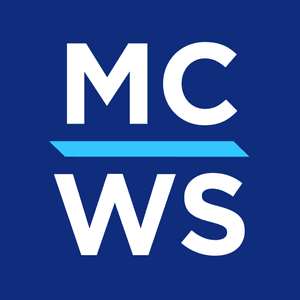Note: This information is from 2020 but much has changed since then. Please be sure to discuss your unique financial situation with your McKinley Carter Advisor or another trusted professional.

Smart Family Finances to Improve Your Money Decision-Making
Editor’s Note: This is the first part of a series of blogs that talk
about Smart Family Finances and ways to improve decision-making
regarding your money.
An invaluable financial habit for all stages of life is regularly setting time aside to contemplate a future, measure and assess one's current situation, and consider plans to accomplish goals. Let's call this a habit of assessment. Without this deliberate habit, tomorrow is more likely to become yesterday with little being accomplished.
Editor’s Note: This is the first part of a series of blogs that talk about Smart Family Finances and ways to improve decision-making regarding your money.
Financial decisions and planning concerns change significantly over time. Surely, keynote speakers at college graduations would forego a “Go forth and set up a 401(k) account” speech in favor of more relevant wisdom. Different concerns naturally arise at different times in our lives. Yet, it doesn't hurt to mentally set up space for many possibilities.
An invaluable financial habit for all stages of life is regularly setting time aside to contemplate a future, measure and assess one's current situation, and consider plans to accomplish goals. Let's call this a habit of assessment.
Without this deliberate habit, tomorrow is more likely to become yesterday with little being accomplished. As life progresses, valuable assessments often require increasing time investments. The focus of building this habit in earlier years is to develop decision-making ability, and an understanding of your personal capabilities and weak spots.
It is very valuable to “get out of your own head”, which is aided by speaking out loud. Working through various aspects of your finances with a trusted partner/friend or advisor will build your financial instincts and confidence to make good decisions. Speaking helps separate what you believe, want, know and need. (Note: Later in this series, we will address the role of a financial advisor in helping with planning.)
Here are a few broad areas of personal financial management that warrant regular conversation or contemplation:
- A good starting point is to review your current "infrastructure" and how you are organized financially. Also consider your financial resources and obligations — in other words, what do you own and what do you owe?
- Then review what significant changes happened in both your personal and financial life during the last "reporting" period. Did you get married or buy a new home? Did you start a new career or get laid off because of COVID-19? Did you receive a significant cash inheritance or antique collection? Did you start a trust fund for your grandchildren? All such changes impact your financial plan.
- Review your results since your last report. Ask yourself, “Do I feel good about my personal finances — did my financial management work for me?” Implement needed changes.
- Record your concerns, conclusions, questions and "Next Action Steps."
Note, the above steps are mostly looking backward. Next it’s important to turn to advance introspection about your future, or your combined future with your life partner. Imagining one's future is what separates us from other species. You can begin to create categories of goals. Sample categories to brainstorm your future could include financial, personal, educational, cultural, philanthropic, business/entrepreneurial, travel/leisure, and fitness.
The art of planning is learning how to frame your assessments and goals in order to make the most of your resources. For an expanded list of assessments, click here.
